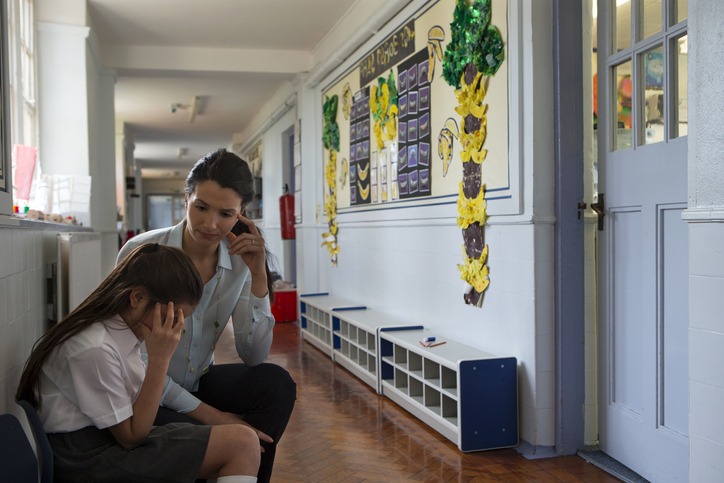
As reported by BBC News, a survey by the National Governance Association (NGA) reveals that more than half of school boards, trustees, and academy committee members report a surge in safeguarding concerns, signalling ongoing challenges for the education sector in 2023
The study by the National Governance Association (NGA) comes amid growing disquiet over child welfare since the beginning of the covid pandemic.
Neglect, domestic abuse, and bullying were the top three issues highlighted in the report.
The NGA is the membership organisation for governors, trustees and clerks at England’s state schools.
Members who responded said “self-harm and other mental health concerns are our largest and most growing concern by far” and “there is also a high rate of students self-harming”.
More than 55% of the 2,695 people surveyed reported an increase in safeguarding concerns, while only 3% noted a decrease.
The impact of school closures during the pandemic had played a role in these trends, the NGA said, as 71% of governing boards reported a rise in safeguarding issues when asked as part of last year’s annual study.
Sam Henson, director of policy and communications at the NGA, said the “aftershocks” from the pandemic continued to affect schools in 2023.
“While three years ago we grappled with the unprecedented tribulations of a global pandemic, only a naive observer would suggest that these pressures now only reside in the history books,” he said.
Neglect and domestic abuse were key concerns for primary schools, while online abuse emerged as a significant worry for secondary schools.
Bullying featured across both primary and secondary education.
Methods used to support students’ mental health and wellbeing had also declined since 2022, with almost all dropping by at least 6%, the survey found.
The rising concerns around pupils’ mental health have placed strain on external services, which continues to be felt in schools and trusts across the country, Mr Henson said.
Governing boards said pupils were often faced with long waiting times and their school or trust had insufficient access to resources.
More than half of boards said balancing the budget remained their top challenge, with fewer than two in 10 saying they were financially sustainable in the medium to long term.
More than a third of respondents (37%) stated their school buildings were not in good condition, and satisfaction with the government’s performance on education is at an all-time low among governing boards (9%).
A government spokesperson said: “We are supporting the expansion and transformation of mental health services through the NHS Long Term Plan, with investment of an extra £2.3bn a year by March 2024.
“School leaders should ensure they have clear systems and processes in place for identifying possible mental health problems.
“To expand access to early mental health support, we are also increasing the number of Mental Health Support Teams from 398 to approximately 500 in 2024.”


Be the first to comment